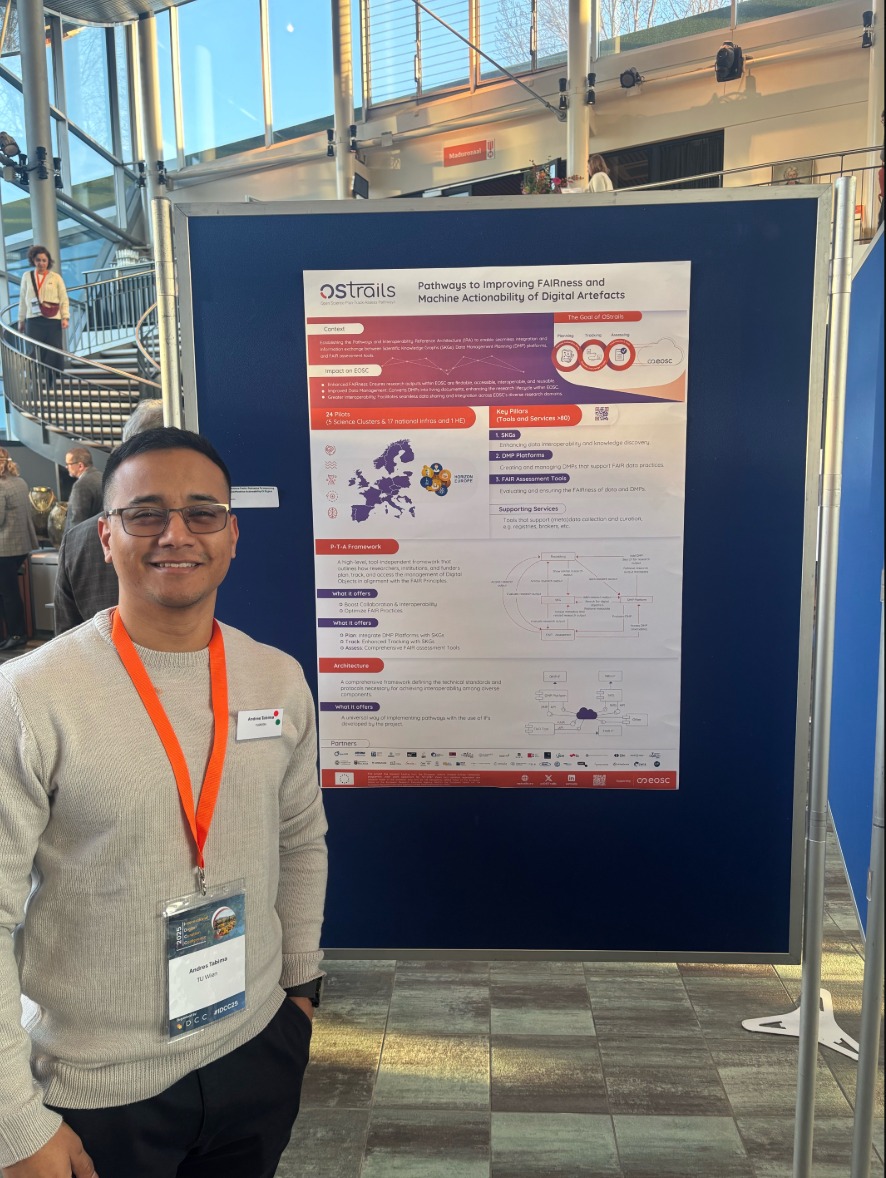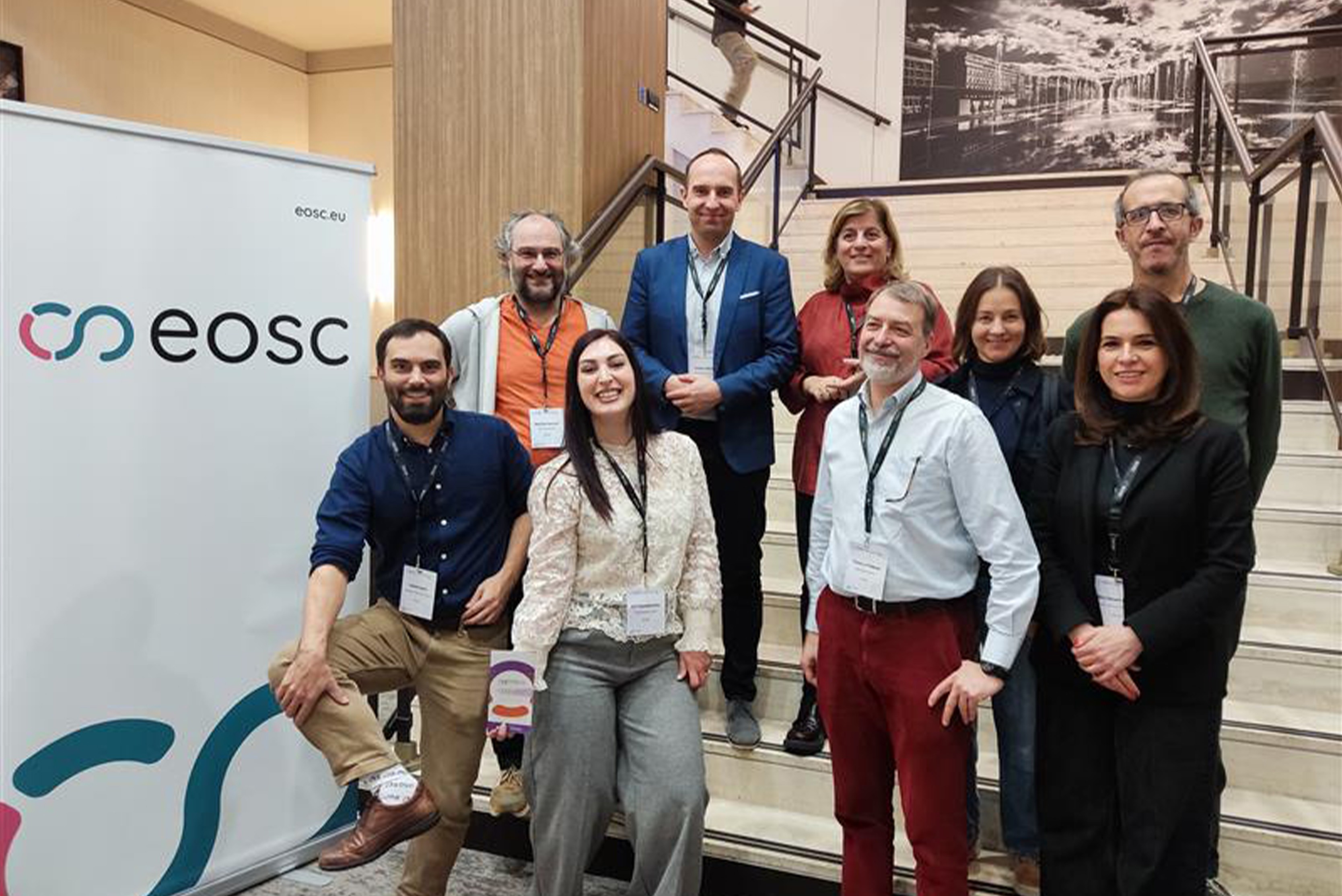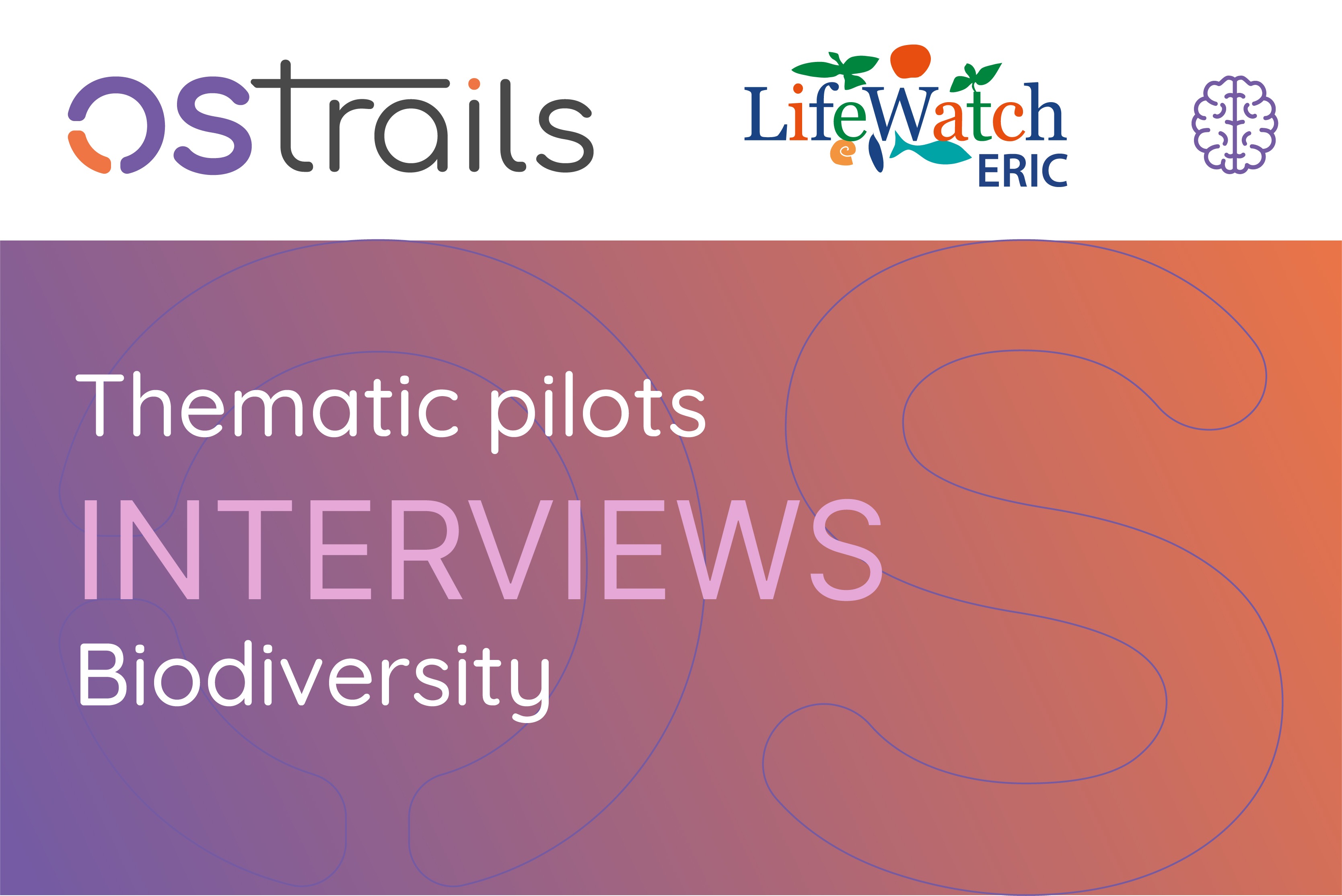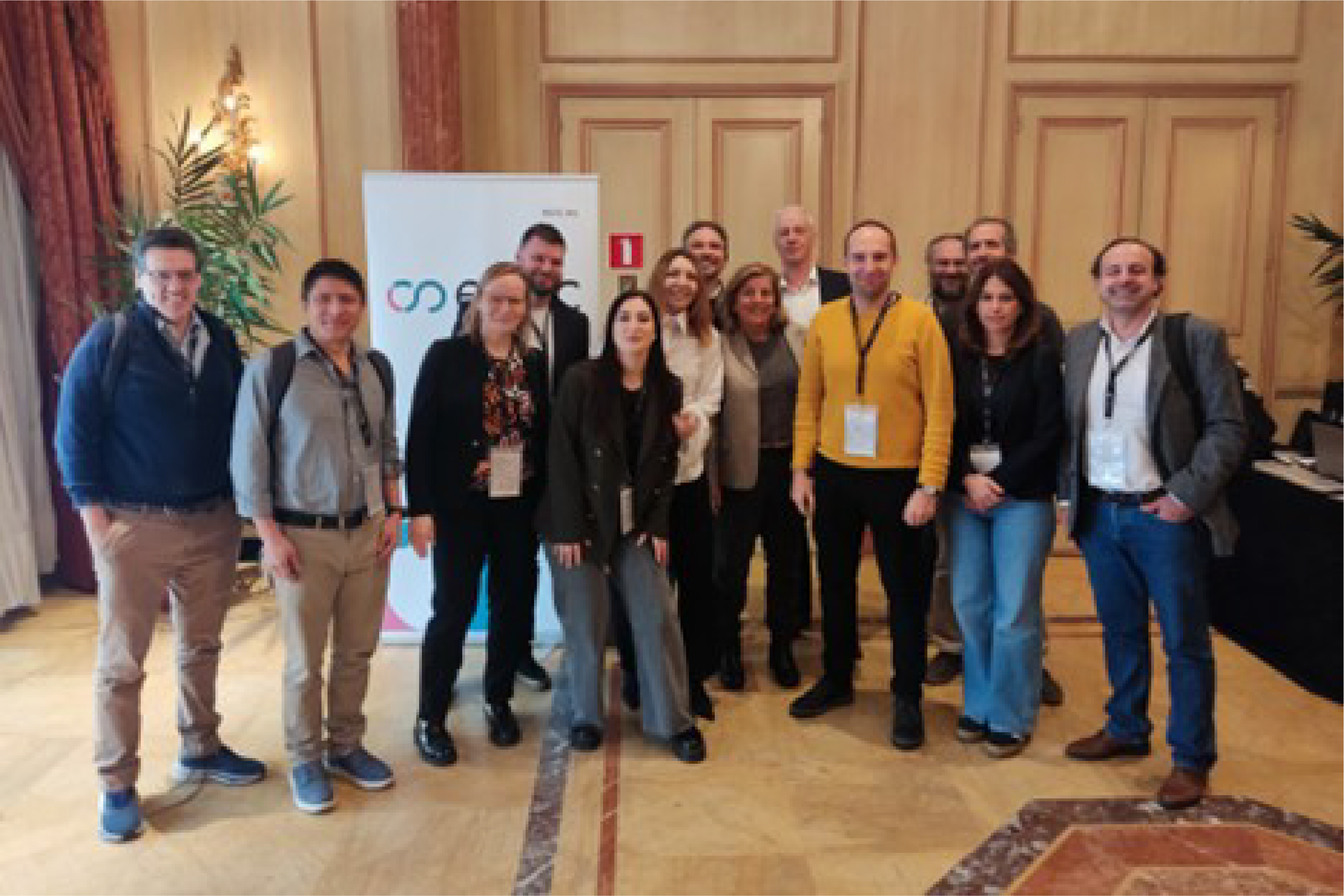OSTrails at IDCC 2025

At IDCC 2025, OSTrails presented its first-year results toward transforming research ecosystems into seamless, automated, and fully FAIR environments, highlighting thePlan-Track-Assess Framework, which links Data Management Plans (DMPs), Scientific Knowledge Graphs (SKGs), and FAIR assessment tools. Together, these components demonstrate how interconnected infrastructures can significantly enhance efficiency, transparency, and reusability throughout the research lifecycle.
Key takeaways from the event
-
OSTrails addresses a clear gap in Open Science infrastructure by enabling machine-actionable and interoperable data management.
-
The Plan–Track–Assess Framework was well received for its practical integration of DMPs, knowledge graphs, and FAIR assessment tools.
-
Feedback highlighted the need to align with institutional workflows and CRIS systems without adding burden to researchers.
-
OSTrails’ enhanced DMP platforms, such as DAMAP, reflect the project’s progress through real-world pilots and integration efforts.
The conference served as a strategic platform for OSTrails to validate and disseminate its core architecture, tools, and methodologies. Presented by TUWIEN partner Andrés Tabima, the OSTrails poster highlighted the Plan–Track–Assess Framework and OSTrails’ integrated approach to machine-actionable DMPs, scientific knowledge graphs, and FAIR assessment tools—demonstrating how the project supports data stewardship aligned with FAIR principles and international standards such as EOSC and RDA. A second poster on DAMAP, one of the enhanced DMP platforms within the OSTrails framework, provided a concrete example of implementation in practice. Together, these contributions showcased how OSTrails’ vision is being realised through technical development, service integration, and collaboration with 25 pilot initiatives across 17 countries and 5 EOSC Science Clusters.

The poster attracted strong interest, especially from researchers and data stewards exploring scalable solutions for interoperability and automation. Discussions focused on linking DMPs with institutional workflows and CRIS systems. The feedback received is now informing the refinement of OSTrails’ technical framework, ensuring continued alignment with real-world needs and community practices.
Conclusions derived from attending the event
The IDCC 2025 experience reaffirmed OSTrails’ strategic positioning in the Open Science landscape. The validation of the Architecture and Interoperability Framework, along with strong interest in the Commons concept and pilot outcomes, underscored the need for ongoing coordination with EOSC and global data initiatives. Feedback gathered will inform refinements to the project’s tools and implementation pathways, reinforcing its role in shaping future-ready, FAIR-aligned research infrastructure.
Poster Materials
- Open Science Trails – Pathways to Improving FAIRness and Machine Actionability of Digital Artefacts
https://doi.org/10.5281/zenodo.14974630
- Building a Bridge to the Future of Machine-actionable DMPs with DAMAP
https://doi.org/10.5281/zenodo.14781625



